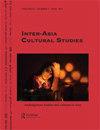剥夺少数民族未成年人的权利:专制确定性的影响
IF 0.4
4区 社会学
Q4 ANTHROPOLOGY
引用次数: 0
摘要
摘要未成年人形象是中国电影中一个被大量刻划的代表性主题。在社会主义电影传统中,少数民族儿童的形象是完全同化的、冷漠的等待中的成年人,而今天中国电影中对少数民族儿童的描绘有了更多的细微差别,因为艺术电影的真实美学要求少数民族儿童在一个复杂的社会关系网络中表现出他们的社会存在,这个网络充满了现代与传统、身份结构及其重构之间的紧张关系。本文考察了2018年两部关于西藏和中国维吾尔地区未成年人的电影——拉帕嘉的《旺德拉的雨靴》和王丽娜的《初次告别》。通过flix Guattari所说的“部分主观性”和“社会机器”的镜头,这篇文章展示了这两部电影是如何将天气预报和普通话语言能力描绘成中国国家权力的社交渠道,并为少数民族儿童带来专制确定性的影响。本文认为,这两部电影批判了中国目前在上述地区的民族政治战略,这些战略以削弱多元民族社会现实为代价,以单一语言和单一语言表达泛中国身份为代价。关键词:西藏、维吾尔、社会机器、微观法西斯主义《儿童形象》特别术语《stabledisplay table》第一部《初次告别》获得柏林电影节“一代水晶熊”k +单元和东京亚洲未来最佳电影奖。例如,《初次告别》的剪辑师是法国人马修·拉克劳,他之前曾剪辑过几部获奖的中国电影导演贾樟柯的电影。王德的《雨靴》是由白杨、于建宏、两位中国人和西藏人索南嘉共同制作的。重阳节是中国的传统节日,在中国农历九月初九,人们向已故或活着的老人表示敬意瓜塔里用这个词来描述在大众社会中具有同质化作用的设备,见瓜塔里,混乱,30.5西藏文化用亲属术语来描述不相关的社会关系,作为一种表示尊重的方式,这里的词根aku(ཨ)是藏语亲属术语,意思是父亲的叔叔根据中国宪法第十九条,特别是2001年1月颁布的《中华人民共和国国家通用语言文字法》,这是中国每一所小学的普遍口号。作者简介:彭海,美国匹兹堡大学历史系现代中国和亚洲内部研究助理教授。本文章由计算机程序翻译,如有差异,请以英文原文为准。
Deracinating ethnic minors: the affect of authoritarian certitude
ABSTRACTThe figure of the ethnic minor is a heavily inscribed representational subject in PRC cinema. Coming out of a socialist cinematic tradition as images of thoroughly assimilated, phlegmatic adults-in-waiting, the portrayal of ethnic children in PRC cinema today assumes more nuances as an art-house cinema verité aesthetics demands ethnic children enact their social presence in a complex network of social relations fraught with the tension between modernity and tradition, identity structures and their restructures. This paper examines two 2018 films about ethnic minors in Tibet and the Uyghur region of China—Wangdrak’s Rain Boots by Lhapal Gyal and A First Farewell by Wang Lina, respectively. Through the lenses of what Félix Guattari calls “partial subjectivity” and the “social machine,” the article demonstrates how the two films portray weather forecast and linguistic ability in Mandarin Chinese as socializing conduit of Chinese state power and produce for the ethnic children an affect of authoritarian certainty. The paper argues that those two films critique the PRC’s current ethnopolitical strategies in the said regions, which place a premium on a monoglot and monovocal articulation of a pan-Chinese identity at the cost of impoverishing a polyvocal ethno-social reality.KEYWORDS: TibetUyghursocial machinemicro-fascismFélix Guattarifigure of the child Special termsTableDisplay TableNotes1 A First Farewell won the Crystal Bear of the Generation Kplus section at Berlinale and the Asian Future Best Film award in Tokyo. Wangdrak's Rain Boots nominated for the Crystal Bear at Berlinale.2 The editor for A First Farewell, for example, is Frenchman Matthieu Laclau, who had previously edited several films by the award-winning Chinese filmmaker Jia Zhangke. Wangdrak’s Rain Boots was co-produced by Bai Yang, Yu Jianhong, two Chinese and Sonam Gyal, a Tibetan.3 Observed on the ninth day of the ninth month in the Chinese calendar, Chong Yang is a traditional Chinese holiday which involves paying respects to one’s elderly, deceased or alive.4 Guattari uses this term to describe apparatuses that have a homogenizing effect on a mass society, see Guattari, Chaosmosis, 30.5 Tibetan culture speaks of unrelated social relations in kinship terms as a way of showing respect, here the suffix aku (ཨ་ཁུ་) is a Tibetan kinship term meaning paternal uncle.6 This is a universal slogan that graces every primary school across China in adherence to article 19 of the Chinese Constitution and more specifically the Law of the People’s Republic of China on the Standard Spoken and Written Chinese Language promulgated in January 2001.Additional informationNotes on contributorsPeng HaiPeng Hai is an assistant professor of modern China and Inner Asia in the Department of History at the University of Pittsburgh.
求助全文
通过发布文献求助,成功后即可免费获取论文全文。
去求助
来源期刊

Inter-Asia Cultural Studies
Multiple-
CiteScore
0.90
自引率
20.00%
发文量
22
期刊介绍:
The cultural question is among the most important yet difficult subjects facing inter-Asia today. Throughout the 20th century, worldwide competition over capital, colonial history, and the Cold War has jeopardized interactions among cultures. Globalization of technology, regionalization of economy and the end of the Cold War have opened up a unique opportunity for cultural exchanges to take place. In response to global cultural changes, cultural studies has emerged internationally as an energetic field of scholarship. Inter-Asia Cultural Studies gives a long overdue voice, throughout the global intellectual community, to those concerned with inter-Asia processes.
 求助内容:
求助内容: 应助结果提醒方式:
应助结果提醒方式:


